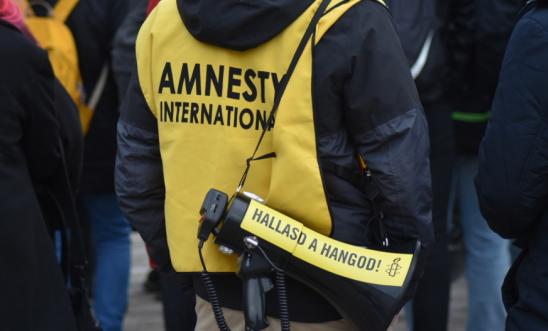
Press releases
Hungary: Proposed law targeting civil society aims to 'silence critical voices'

’In the face of this latest attempt at intimidation, everyone must come together to call for this bill to be dropped’ - Dávid Vig
Responding to the submission to the Hungarian parliament this week of a so-called ‘Sovereignty Protection Bill’ by Hungary’s governing Fidesz party, Dávid Vig, Amnesty International Hungary’s Director, said:
“This legislation is the latest attempt by the Hungarian government to silence critical voices and deter people and organisations from standing up for human rights.
”The overly-broad and vague wording of the bill will make it possible for it be used against anyone the Government wants to, while providing no remedy for organisations and individuals targeted under its terms.
“Like other recently-adopted laws aimed at independent NGOs and media outlets, this proposed legislation breaches Hungary’s domestic and international obligations.
“In the face of this latest attempt at intimidation, everyone must come together to call for this bill to be dropped.”
Targeting civil society
The bill aims to create a new authority, dubbed the Sovereignty Protection Office, tasked with investigating organisations and individuals who are considered a “threat to national sovereignty” or to be engaging in activities “influencing public decision making” or in “influencing the will of the voters”. The vaguely-worded bill lacks any guarantees ensuring that these investigations would not be used to stigmatise and intimidate those who are critical of the authorities. The Sovereignty Protection Office would have an overarching power to examine and copy NGOs documents, question staff and require heads of organisations to appear before the parliamentary national security committee. The office will also receive information directly from Hungary’s secret services.The proposed bill also amends the country’s criminal code by establishing a prison sentence of up to three years for organisations and individuals who are using foreign funding in their political campaigns.